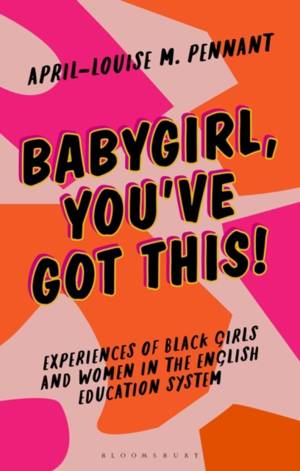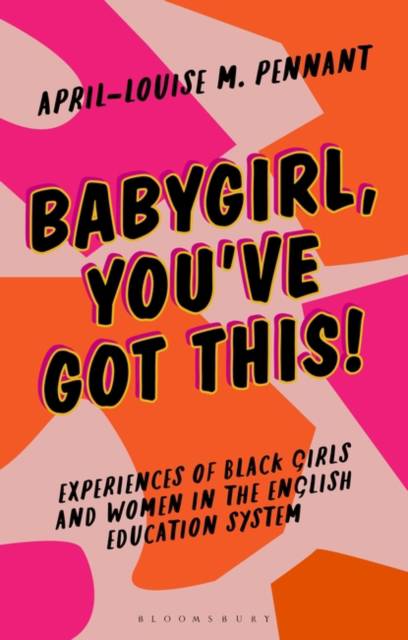
- Afhalen na 1 uur in een winkel met voorraad
- Gratis thuislevering in België vanaf € 30
- Ruim aanbod met 7 miljoen producten
- Afhalen na 1 uur in een winkel met voorraad
- Gratis thuislevering in België vanaf € 30
- Ruim aanbod met 7 miljoen producten
Zoeken
Babygirl, You've Got This!
Experiences of Black Girls and Women in the English Education System
April-Louise Pennant
€ 161,45
+ 322 punten
Omschrijving
How do Black women experience education in Britain?
Within British educational research about Black students, gender distinctions have been largely absent, male-dominated or American-centric. Due to the lack of attention paid to Black female students, relatively little is known about how they understand and engage with the education system, or the influences which shape their long-term strategies and decision-making in order to gain educational 'success'.
Specificaties
Betrokkenen
- Auteur(s):
- Uitgeverij:
Inhoud
- Aantal bladzijden:
- 304
- Taal:
- Engels
- Reeks:
Eigenschappen
- Productcode (EAN):
- 9781350279001
- Verschijningsdatum:
- 22/02/2024
- Uitvoering:
- Hardcover
- Formaat:
- Genaaid
- Afmetingen:
- 140 mm x 216 mm
- Gewicht:
- 512 g

Alleen bij Standaard Boekhandel
+ 322 punten op je klantenkaart van Standaard Boekhandel
Beoordelingen
We publiceren alleen reviews die voldoen aan de voorwaarden voor reviews. Bekijk onze voorwaarden voor reviews.







